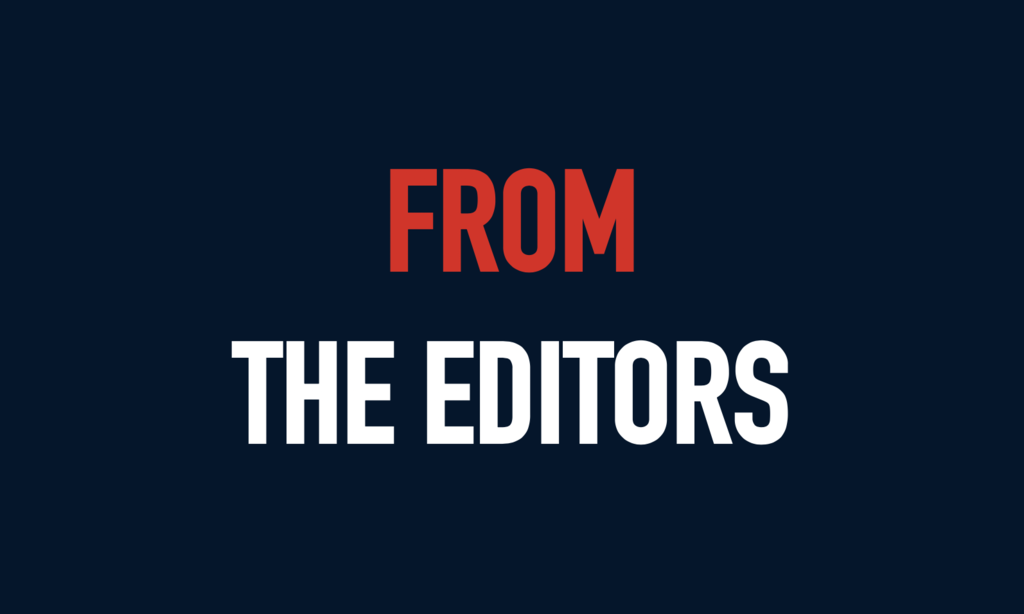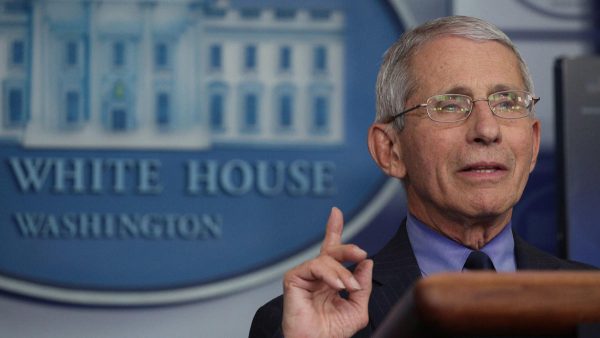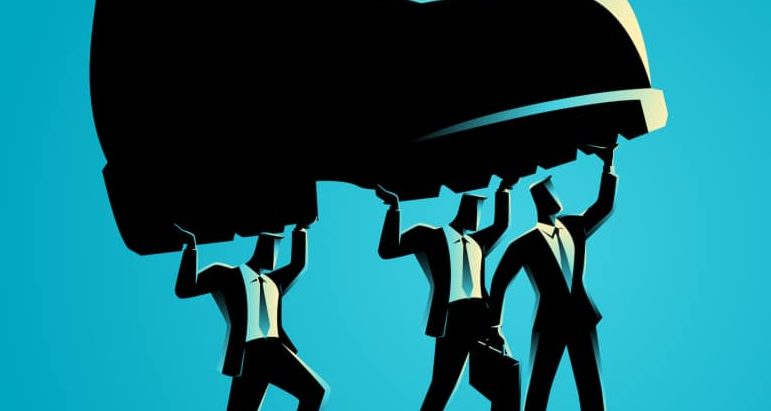COVID-19 revealed what fools we have made of ourselves.
Terms of Servitude

A fresh lesson in the un-American cost of chilling online political speech.
After January’s explosive drama, the battle for digital control of American life is now proceeding quietly, by soft degrees. The shock of 1/6 has morphed into a pretext for something still more consequential: a new phase of national crisis wherein corporations with strategic control over Americans’ communications enforce a creeping line of censorship against critics of the sitting regime. While online platforms claim only to be applying their terms of service in neutral fashion, those terms themselves stink of delegitimization. Once this shadow falls upon you and your account, you are as good as deactivated. You know this; you know they know this; they know you know they know it. Forced de facto to impose a precautionary principle on yourself, you “voluntarily” recoil well from the fuzzy line of unofficial censorship that advances far beyond the bright official line.
Already in March of 2020, Google had erased heterodox research on COVID-19. But things escalated rapidly when election season came in earnest. The New York Post was locked out of Twitter for breaking a story about Hunter Biden’s Chinese business ventures. The sitting president had his social media accounts shut down entirely. Twitter competitor Parler was removed from Amazon’s servers for hosting discussions among Trumpists about the unfolding events. And YouTube banned even the allegation of widespread election fraud. Americans realized—or should have—that they had suddenly been herded into a communications control system unlike any ever imposed—or even conceived—in America.
Not merely a handful of fringe cranks, but a full half of the country, is being pre-screened out of the kinds of political discourse fundamental to American citizenship. Yet this radical change is setting in with unnerving ease and rapidity. Day by day, Americans are losing faith that there is anything they can do about it. Day by day, they are getting used to it. Ryan T. Anderson’s fair and sensible interrogation of transgenderism was stripped off of Amazon; Shelby Steele had to fight tooth and nail before his documentary on race relations would stream on Prime, which also axed Michael Pack’s Created Equal: Clarence Thomas in his Own Words (which even PBS was open-minded enough to air) during black history month. Though all these turns of events got some press in the predictable places, each new act of censorship goes down a little easier with the general public. This “reset”—this revolution—is just the way things are now.
This week, The American Mind experienced the new “normal” firsthand. A recent piece of content entitled “The Ruling Class Strikes Back” was removed from YouTube “due to a violation” of what YouTube calls its Community Guidelines, specifically the prohibition regarding “spam, deceptive practices, and scams.” Our colleagues pressed YouTube’s support team on the claims and discovered that the video was flagged for “advancing false claims that widespread fraud, errors, or glitches changed the outcome of the U.S. 2020 presidential election.”
This action is much more than the online equivalent of a moving violation. It is a permanent warning, which flags not just one’s challenged content but one’s entire account. In this way, any finding of another infraction between now and eternity results in a suspension and, in effect, a blacklisting. Officially, it’s three strikes you’re out. Unofficially, and no doubt deliberately, after just one transgression against the political speech code, the only reasonable reaction is to bend over backwards to silence yourself—not just on the original matter, but on any matter that might cause the Eye of Sauron to swivel your way again.
In our case, we suspect the offending verbiage concerns the election-season wave of court suits and legislation deployed to strengthen the prospects of the Left: “Its lawfare had the effect of making vote fraud on a mass scale far easier, and harder to trace, than ever before. If nothing else, this had the effect of irrevocably undermining American confidence in our elections.” In other words, it is “deceptive practice” to suggest that the 2020 election was anything other than perfectly regular and beyond reproach in every regard. Though the podcast is still accessible on our Apple Podcasts feed, the black mark will remain on our record with YouTube—making us vulnerable to a complete account wipe down the line should we “misstep” again.
None of this is illegal. We recognize that. We understand the argument, repeated somewhat tiresomely, that private companies are free to host speech or not, and to do business or not, as they wish. But Twitter, YouTube, Google, and Facebook are more than private companies. They are now powerful quasi-government entities, with no precedent or constitutionally established role in our government, which, by their own admission, have a profound national effect on American politics. (That’s how Twitter justifies the need for its “Civic Integrity policy” in the first place.) Clinton voter Robert Epstein, senior research psychologist at the American Institute for Behavioral Research and Technology, found in 2018 that “no company in the history of the world has had the ability to shift votes and opinions to the extent and on the scale that Google has.” These companies are not just doing business: they are reshaping our regime. At the very least, we should have a say in how this goes down. But on just this question of the ruling class transforming our form of government against our will and without our participation, the noose of suppression tightens, and Americans slip into silence.
As a governing logic for our national culture, as a regular dynamic of public life, this creeping censorship is inescapably un-American. Our colleague Michael Anton pointed out to Tucker Carlson that the way to settle concerns about election integrity in a free society is not to punish them but to answer them, with open discussion in the public square. Instead, even a conscientious objection to proclaiming affirmatively what the ruling class demands is being denied.
And what is good for the goose of the 2020 election is good for the gander of whatever the regime chooses to officialize, from the politics of transgender activism to those surrounding coronavirus lockdowns. To make the broadcast of one set of views all but mandatory, and to keep those who disagree from organizing, having their say, and engaging on their merits, is flatly inconsistent with our most fundamental habits and mores, our way of life, and, ultimately, our form of government.
We will continue sharing our frank assessments of this and subsidiary issues at the heart of the political crisis forced on our country by its current revolutionary regime. We will not stick to the pre-approved script of a powerful minority or sing from the hymnal of policed opinion. For Americans’ concerns to be answered honestly and resolved legitimately, we must protect their digital communications from the command and control of ruling-class authoritarians. Technologized censorship cannot coexist with the American way of life. It is an irrepressible conflict. And we know which one has to go.
The American Mind presents a range of perspectives. Views are writers’ own and do not necessarily represent those of The Claremont Institute.
The American Mind is a publication of the Claremont Institute, a non-profit 501(c)(3) organization, dedicated to restoring the principles of the American Founding to their rightful, preeminent authority in our national life. Interested in supporting our work? Gifts to the Claremont Institute are tax-deductible.
Is the leftist dream now within reach? If President Trump loses, we will find out.
Technocrats are imposing foreign law on American jurisdictions.



